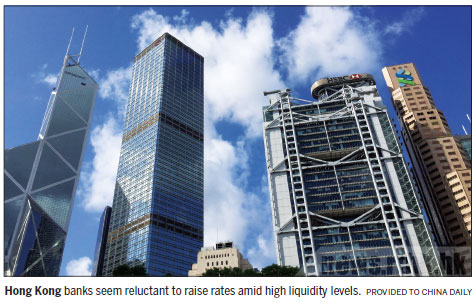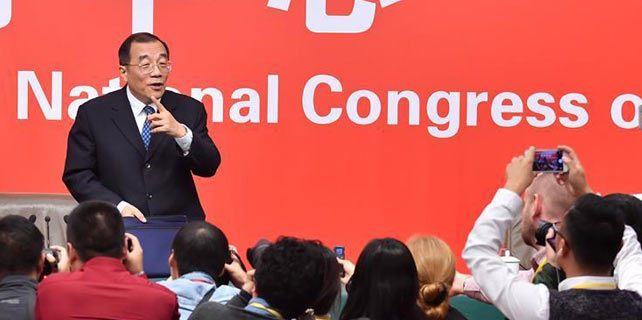Steady rate hikes still better than sudden jerks for HK
Hong Kong investors have shrugged off repeated warnings from the government and economists about impending rate hikes as nothing more than "cry wolf". They believe that the never-ending inflow of overseas capital into Hong Kong will continue to flush the banking system with liquidity, negating any need to bring local rates in line with those in the United States.
They could be wrong. The Hong Kong Monetary Authority - the city's de facto central bank - which had done little in the past, is becoming active in trying to absorb "excessive" liquidity in the banking system by selling debt instruments on a regular basis to financial institutions.
Its latest move is seen as having been triggered by concerns stemming from the widening interest rate differential between Hong Kong and the US. Despite the huge gap, the demand for Hong Kong dollars resulting from capital inflow has made it unnecessary to raise rates to defend the linked exchange rate mechanism.
The situation is becoming increasingly untenable with the US Federal Reserve having set in motion the unwinding of its balance sheet, leading to high expectations of another rate hike by at least 25 basis points in December. Growing expectations of currency appreciation, coupled with higher interest returns in the US, could be too much of a lure to overseas investors.
For that reason, further delaying interest-rate increases in Hong Kong could lead to sudden and large rate hikes later as a result of a massive outflow of overseas capital to the US. The magnitude of the credit tightening could wreak havoc on the assets market, leading to a possible collapse in property prices that have been pushed to the current high levels by the plentiful supply of liquidity at record low costs.
With the system still flushed with liquidity, there's little reason for banks to raise rates at this time. The HKMA may have to step up its efforts to soak up the excess liquidity to ensure a steady and progressive increase in borrowing cost, rather than sudden jerks that could throw the capital market out of kilter.

















